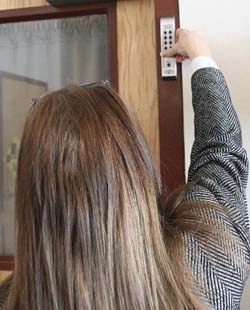Think Betty Ford Center with mountains and not as many celebrities.
With a 4-0 vote, the Oakley Planning Commission Thursday approved a conditional use permit for a facility for patients with drug addictions. The owner of The Wentworth, an assisted living center situated near S.R. 32 in Oakley wants to convert a portion of their 36,000 square-foot building — reserved mostly for Alzheimer’s disease patients — into a center for recovering drug addicts and alcoholics.
The facility can house up to 20 adult patients who “voluntarily” register for the 30-day program, said psychiatrist Joel Hanson, who manages the recovery center.
“We can’t be trying to keep them there against their will,” Hanson said, adding that patients at The Wentworth would have already undergone initial detoxification for their addictions.
But residents nearly filled a public hearing at Oakley Town Hall Thursday to further inquire about who might be treated at the facility. The Wentworth is near Oakley’s new recreation complex and adjacent to a residential area.
“[Addicts] are very manipulative,” Oakley resident Henry Nygaard said.
He warned Wentworth owner Dennis Madsen that many of the elderly people who live nearby have a “considerable amount” of prescription medications in their homes.
Also, South Summit School District officials have discussed building a school on property they own near The Wentworth, Nygaard said.
Potential patients will be screened for “aggression and criminal activity,” Hanson said, adding that extreme cases and those ordered by a judge to seek treatment won’t be admitted into the program.
“We don’t want to mix those elements, for the purpose of what we’re doing and safety purposes,” Hanson said.
Other South Summit residents insist the yard at The Wentworth must be secure when patients are outside and addicts shouldn’t be allowed to leave the premises unsupervised.
“I don’t anticipate people being out in the roads,” Hanson said.
Ten of The Wentworth’s 42 rooms are in a secured west wing partitioned from the rest of the facility. Substance-abuse patients would access the recovery center through a door separate from the building’s main lobby, he added.
“We do plan on putting bells on the doors so at least we’ll know if anyone is going out,” Hanson said.
When Madsen purchased the Serenity Ranch facility more than two years ago, he said he “inherited a very large building.”
“Even though we’re in a beautiful place, the demographic lends itself to different challenges,” he said, adding that a treatment facility “celebrates remoteness.”
About 30 percent of his patients will be alcoholics, Hanson said, adding that others will likely be struggling with addictions to drugs like methamphetamine and heroin.
Hanson expects to begin treating patients this summer, according to Oakley Planning Department documents. Planning Commissioners Gerald Young, Alton Frazier, Zane Woolstenhulme and Dale Buxton voted to approve the permit. Planning Commissioner Amy Regan was absent.

